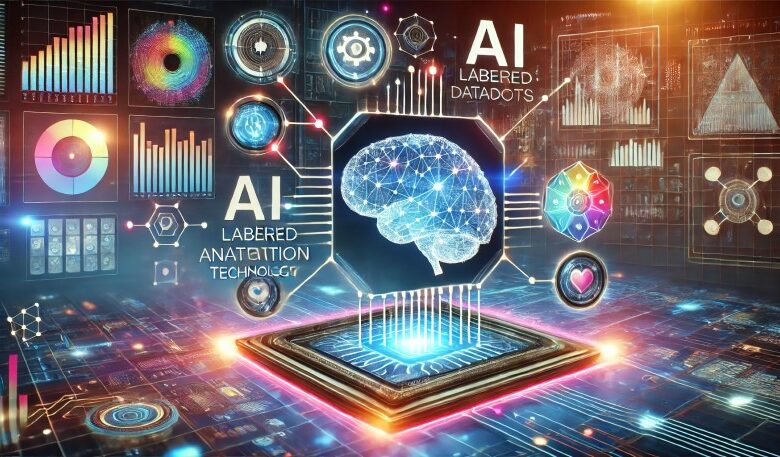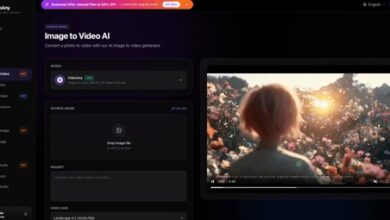The Rise of Data Annotation Tech: Empowering AI Development

Data annotation tech plays a pivotal role in the advancement of artificial intelligence (AI) and machine learning (ML) by providing accurately labeled datasets that fuel algorithmic training. As industries worldwide increasingly rely on AI solutions, the demand for precise data annotation has surged. From identifying objects in images to analyzing sentiments in text, data annotation ensures that AI models can interpret real-world scenarios accurately.
What Is Data Annotation Tech?
Data annotation tech refers to the technology and processes used to label raw data, such as text, images, audio, and video, so that AI systems can recognize patterns and make predictions. Without this foundational step, even the most sophisticated AI models would struggle to perform effectively. Annotation involves tasks like identifying objects, tagging entities, transcribing audio, or segmenting images—all critical steps in creating actionable AI systems.
Importance of Data Annotation Tech in AI
Data annotation is indispensable for creating AI systems that drive modern applications. For example, autonomous vehicles rely on labeled datasets to recognize pedestrians, traffic signals, and road conditions. Similarly, e-commerce platforms use annotated data to provide personalized recommendations and enhance user experiences. The widespread application of AI across industries like healthcare, finance, and retail underscores the growing significance of data annotation tech.
Types of Data Annotation
Data annotation encompasses various types, each tailored to specific AI use cases:
1. Text Annotation
Text annotation involves labeling elements within written content, such as identifying entities, emotions, or intents. This type is vital for natural language processing (NLP) tasks like chatbots, sentiment analysis, and translation services.
2. Image Annotation
This process involves tagging objects, bounding boxes, or landmarks within images. Image annotation is crucial for computer vision applications, such as facial recognition, object detection, and medical imaging.
3. Video Annotation
Video annotation entails labeling moving objects frame by frame to help AI systems understand activities, gestures, or events. It’s widely used in autonomous driving and surveillance technologies.
4. Audio Annotation
This includes transcribing speech, tagging sounds, or identifying accents within audio data. It powers speech recognition systems, virtual assistants, and call center analytics.
5. 3D Point Cloud Annotation
This specialized type labels 3D data points, essential for LiDAR technology used in autonomous vehicles and 3D mapping systems.
Why Choose Data Annotation Tech Companies?
Collaborating with a reliable data annotation tech company ensures high-quality and scalable labeling services. These companies employ skilled annotators and leverage cutting-edge tools to deliver datasets tailored to specific project requirements. Partnering with experts saves time, reduces costs, and guarantees accuracy—a key factor for AI success.
Data Annotation Tech in the UK
The UK has emerged as a hub for data annotation tech companies, driven by a robust tech ecosystem and a growing demand for AI solutions. Businesses in the UK leverage data annotation to improve AI capabilities in sectors like healthcare, transportation, and finance. The country’s strategic focus on AI innovation has fostered the growth of annotation services, making it a critical player in the global AI landscape.
Leading Data Annotation Tech Companies in the UK
The UK is home to several top-tier data annotation companies offering diverse services:
- CloudFactory: Known for scalable and ethical data annotation solutions.
- Appen: Provides comprehensive annotation services across industries.
- Lionbridge AI: Specializes in multilingual data labeling for global markets.
These companies ensure that businesses receive accurate datasets to train AI models efficiently, aligning with the growing need for data annotation tech.
How Data Annotation Tech Enhances AI Systems
AI systems rely on annotated data to achieve precision and reliability. Here’s how data annotation tech transforms AI development:
1. Improved Model Accuracy
High-quality annotations help AI systems recognize patterns and nuances, leading to better predictions and decision-making.
2. Versatility Across Industries
Data annotation tech supports diverse applications, from autonomous driving to personalized marketing, making it a cornerstone of modern technology.
3. Efficient AI Training
Well-annotated datasets reduce the time required to train AI models, accelerating project timelines and enhancing scalability.
4. Enhanced User Experience
With precise data labeling, AI systems deliver more intuitive and user-friendly experiences, fostering trust and engagement.
Challenges in Data Annotation Tech
Despite its importance, data annotation faces several challenges:
1. Scalability
As AI projects expand, annotating large datasets becomes resource-intensive, requiring significant time and expertise.
2. Data Privacy
Ensuring compliance with data protection laws, especially in sensitive industries like healthcare and finance, is a major concern.
3. Quality Assurance
Maintaining consistent accuracy across annotations is crucial but challenging, particularly for complex datasets.
4. Cost Efficiency
Balancing affordability with high-quality annotations remains a critical challenge for businesses.
The Future of Data Annotation Tech
The future of data annotation tech is promising, with advancements in automation and AI-assisted annotation tools. These innovations aim to enhance efficiency, reduce costs, and maintain accuracy. The integration of human expertise with AI-powered tools will likely redefine the data annotation landscape, enabling faster and more reliable outcomes.
Emerging Trends
- AI-Assisted Annotation: Leveraging AI to automate repetitive tasks, allowing human annotators to focus on complex labeling.
- Crowdsourcing: Engaging a global workforce to handle large-scale projects efficiently.
- Domain-Specific Annotations: Tailoring services to industry-specific needs for greater impact.
Conclusion
Data annotation tech is the backbone of AI and ML advancements, ensuring that systems perform accurately in real-world scenarios. From text and image annotation to specialized tasks like 3D point cloud labeling, this field offers immense potential for innovation. With the UK emerging as a key player, data annotation tech companies are poised to drive AI solutions globally. Businesses investing in high-quality annotation services can unlock the full potential of AI, gaining a competitive edge in today’s technology-driven world.



